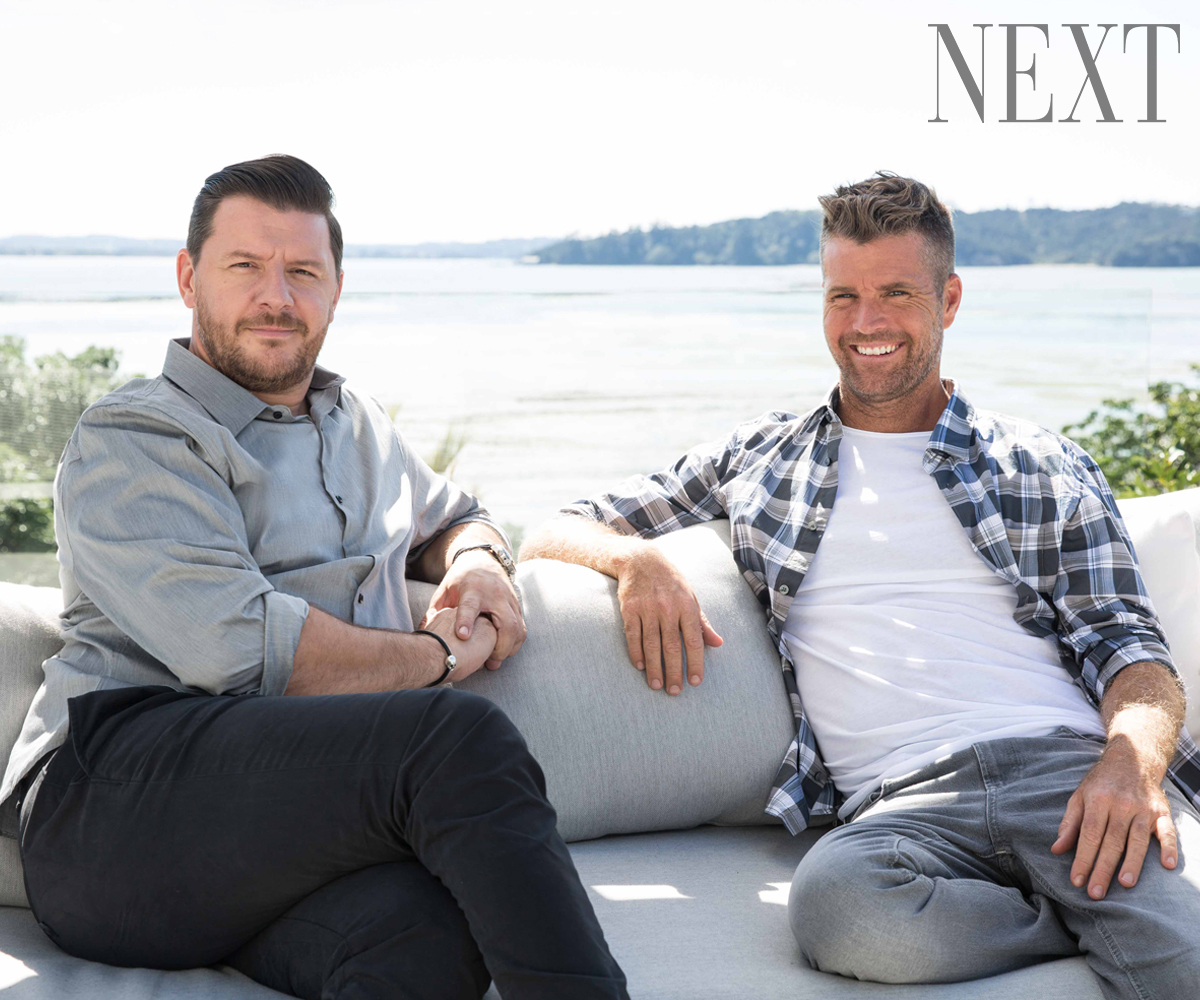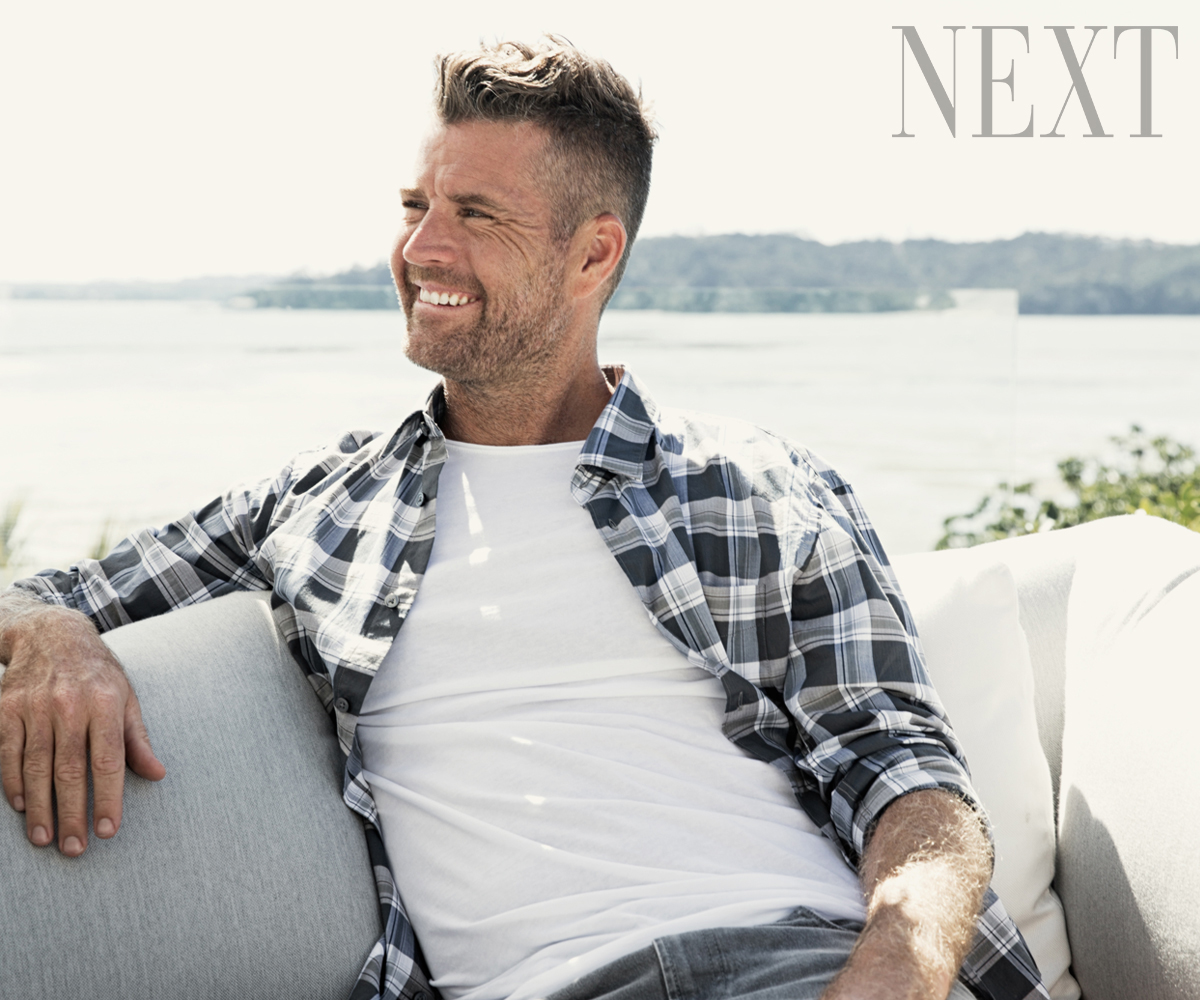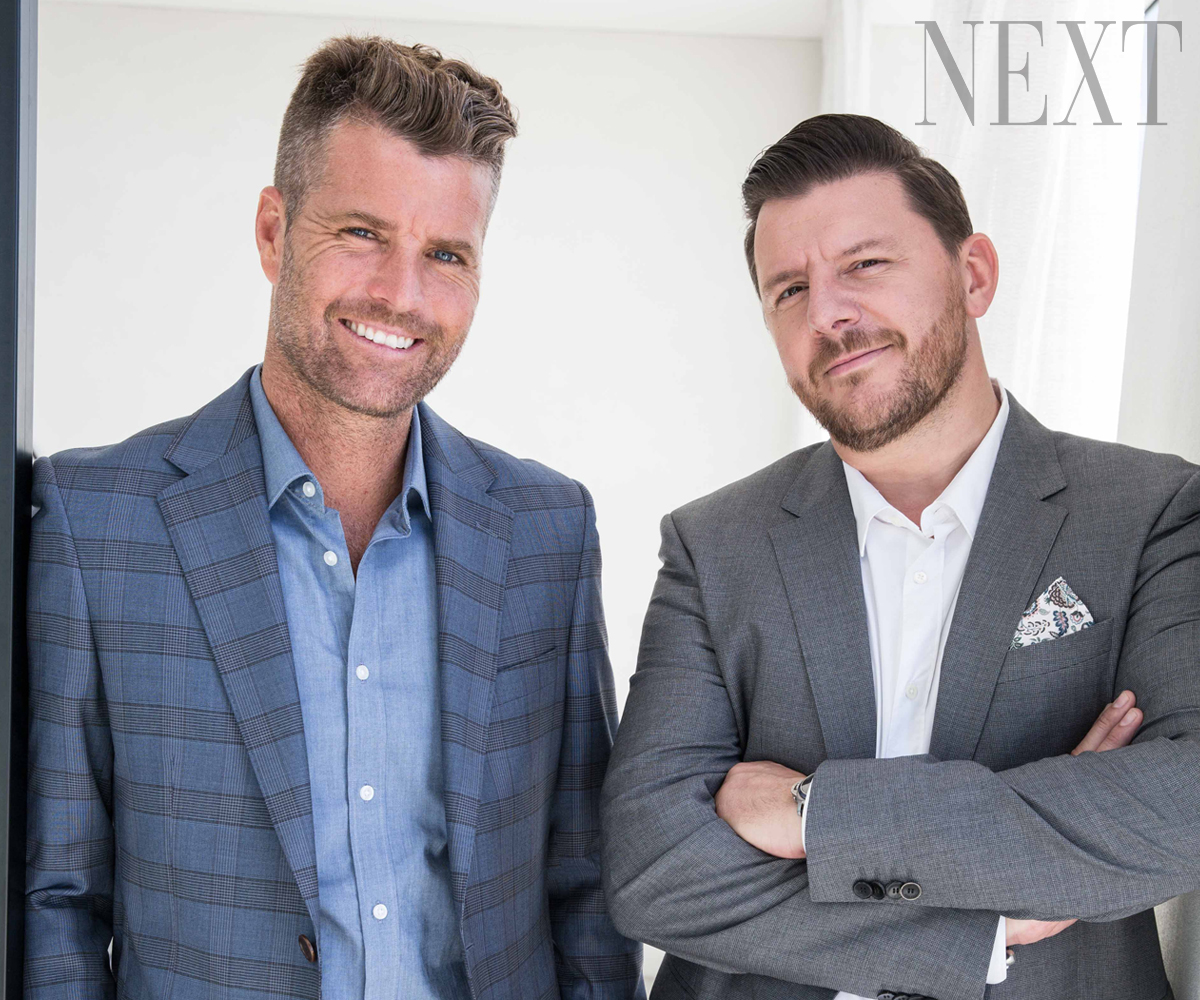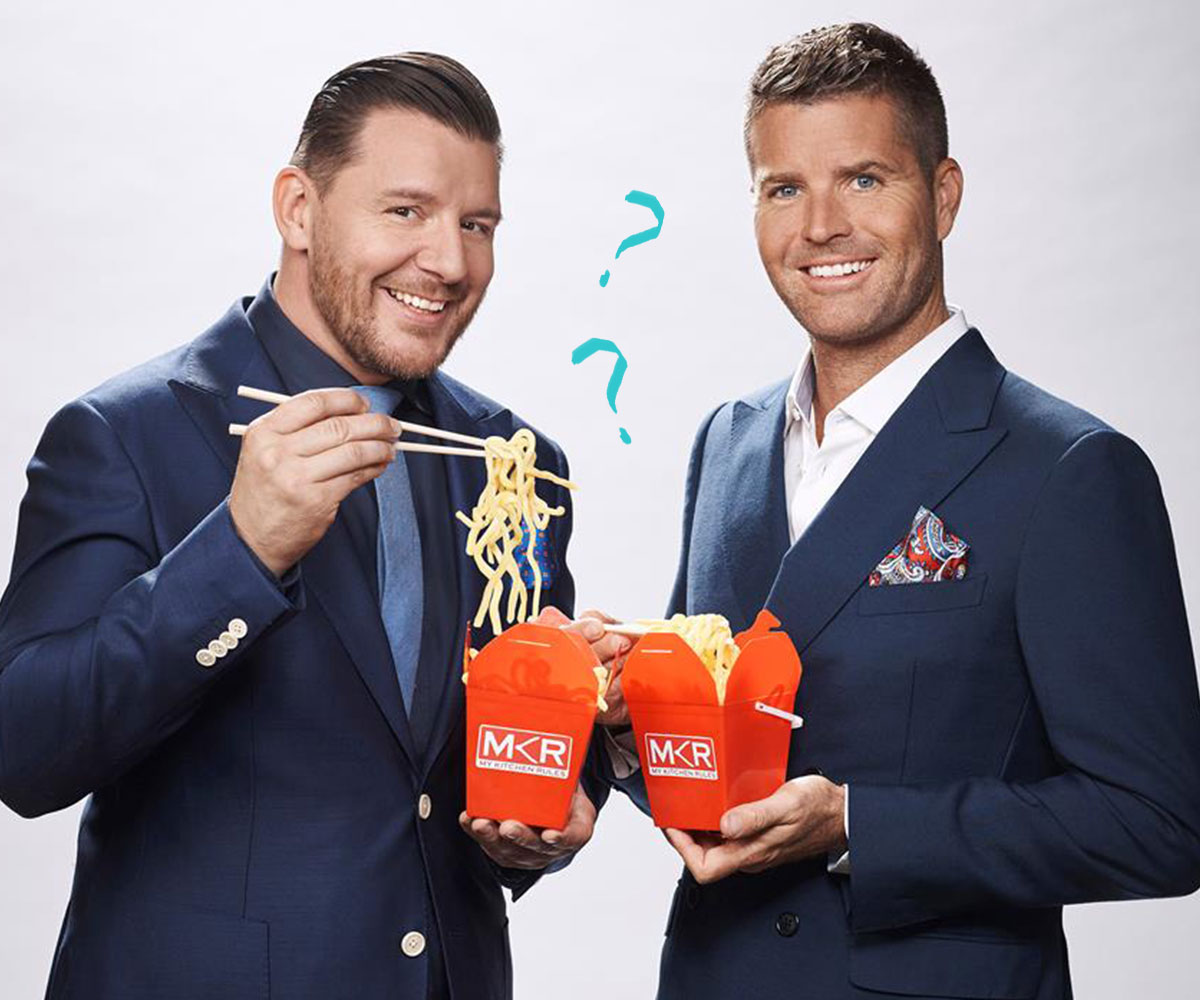When Pete Evans enters the room, a white-walled industrial chic loft space in the heart of Auckland’s Ponsonby, the first thing you notice is his piercing blue eyes and ridiculously white teeth.
The celebrity chef, along with his much-loved partner in crime, Manu Feildel, are squeezing in a press tour before flying back home to Sydney that afternoon after filming another successful season of My Kitchen Rules New Zealand (they’ve now done nine series since MKR Australia first debuted over the ditch in 2010, and it’s still a top-rating prime-time show over there and in New Zealand).
With a black cap and crisp white T-shirt on – sans any sauce stains you might expect from a chef – the 45-year-old introduces himself, shakes my hand and sits down.
Pete’s polite and patient, but no doubt keen to get home to see his two daughters, Indii, 11 and Chilli, 13, who feature heavily throughout his Instagram, predominantly in surf snaps alongside their surfing-mad father.
Manu walks in later with a cheeky grin, comfortable and relaxed, and greets me with a kiss on both cheeks before making himself right at home.
An avid movie-goer, Manu is the 2018 brand ambassador for Hoyts Lux, with his menu offering Kiwi cinema-goers one of his personal favourites: duck bao.
The iconic pair happily oblige to a selfie, both are photogenic and clearly not camera-shy, and then we get chatting. More often than not, Manu interrupts Pete. But that’s not at all surprising given the duo’s playful on-screen personas.
We caught up with the duo to find out about their favourite Kiwi food experience and why they wouldn’t want their children to follow in their culinary footsteps.
What are your thoughts on current food trends – what are you into and what’s passé?
Manu: I don’t think there’s anything passé like fashion – food trends shouldn’t just come and go. I think they should come and stay, and there should be enough choice for everybody because everybody likes different things. For me, what should go is overworked foods, things like fine dining – too many dishes when it comes to a degustation and then you go home and don’t remember what you had.
Pete: What’s exciting at the moment is beautiful nose-to-tail seafood cookery like our friend Josh [Niland] is doing at Saint Peter in Sydney, and chefs bold enough to create their own cuisine. We’ve got a friend, Duncan [Welgemoed] in South Australia, who’s South African. He’s opened up an African-inspired restaurant, Africola, and it’s just won best restaurant in South Australia. So bold cooking, where once upon a time people would want to dumb down their tradition.
What are your thoughts on veganism?
Manu: Each to their own. You could be here for a couple of hours. See you later (laughs).
Pete: I think for the health of the planet and the individual, I think it’s the wrong path. It’s not a natural dietary approach for human beings for long-term sustainable health.
Have you tried eating crickets or any other insects?
Manu: I’ve had deep-fried crickets. I’ve had ants as well, maggots in cheese.
Pete: I’ve had spiders, crickets, and ants. There’s a reason they’re not on a lot of menus. They’re not really flavoursome.
Manu: They’re not disgusting either. They’re just there for texture purpose.
Pete: It’s not like eating a piece of fish or a steak, that’s for sure. In Vietnam they have spiders and crickets and they deep fry them and coat them in a sticky, sweet, spicy sauce, just to give it something.

What’s been your best food experience in New Zealand?
Pete: Bluff oysters.
Manu: Yep, the Bluffs are amazing.
Pete: We got them in the South Island. We were lucky enough to have the first day of the season; they opened them fresh for us. We were in the right place at the right time. That’s pretty special. I know Kiwis love their oysters.
You two are obviously really good mates. Do you inspire each other’s cooking?
Manu: Nope (laughs).
Pete: We take inspiration from each other, for sure.
Manu: Yeah, we’ve got different lifestyles when it comes to food. But we’ve also been trained the same way.
Pete: But I went over to your place for a fish curry the other night with a fish I caught, which was delicious, so we’re always sharing food. Even on the way here, three days ago I picked up some food to share at the airport. We had some French terrine. We often share, which is pretty cool.
What are your thoughts on the classic Kiwi barbecue? Could we do anything differently?
Manu: I visited Texas last year and I think Texan barbecue is the real thing, and I think we should share it with the rest of the world.
Pete: Southern US knows how to barbecue and it’s not how we barbecue in Australia or New Zealand, it’s very different. Lots of slow-cooked meats.
Manu: It’s not just a stove where you put some meat on, it’s slow, smoky cooking with wood and different woods give different flavours and so on. That’s barbecuing for me.
Pete: Things like short rib are cooked for four to six to 10 to 12 hours – you can’t beat it. Nothing compares.
If you were going to a pot-luck dinner, what plate would you bring?
Manu: A big pan of sauce to go with anything else that’s on the table (snorts with laughter).
Pete: I’d probably bring a nice big salad with some meat or fish on it. Something light and bright.
Manu: You would bring a platter of sashimi. That’s what you would bring.
What was the highlight for you on last year’s show?
Manu: The travels – I really enjoyed travelling around the country, and we have equally spent enough time in both north and south. Wanaka for me is the one that really sticks in my brain. I thought it was beautiful.
Pete: Same. Travelling around New Zealand never gets boring. There is always something new to see and the coastline is just amazing, and the mountains are simply beautiful.

Favourite surf spot, Pete?
Pete: Oh, I think Dunedin because there’s no one down there, and it’s cold. Well, I liked it because it was only me.
Manu: You don’t have to fight with other surfers.
Pete: Yeah, it was beautiful.
What vegetables do you grow yourselves?
Pete: Ahh, vegetables. I’m lucky, I’ve grown like 20 different varieties in the garden, I counted the other day. We’ve got pumpkins, cucumbers, tomatoes, zucchinis, beans, heaps of herbs, lettuces, different greens, lemongrass, ginger and turmeric.
Manu: I’ve got herbs and a couple of trees of lemons and limes and that’s pretty much it. I’m not a green thumb.
Pete, it sounds like you live in a beachside paradise. Can you describe your property to us? And you too, Manu?
Pete: Sure, we’re lucky enough to live on 10 hectares near the beach and close enough so I can go surfing. We’ve got room for some horses and chickens. We also grow our own beans and are planting trees. Space can never be underestimated for relaxing and rejuvenation. My wife [Kiwi Nicola Robertson] has two beautiful Friesian horses that she rides, my daughters ride and I jump on one every once in a while.
Manu: Oh, I don’t have a farm. I’ve just got a nice four-bedroom house with a beautiful garden and just enough for us to enjoy our lives. That’s pretty much it really. There’s a big long kitchen, dining room, a lounge and garden, so I can invite friends over and cook, barbecue and so on.
How has the hospitality industry changed since you were younger?
Pete: It’s a little bit gentler now.
Manu: We’re not slaves anymore. I think maybe we worry too much about the new generation. I think we should be a little bit harder on them
but we can’t. It was tough for us.
Pete: The cuisine has also grown immensely as well, from bringing in influences from different cultures and cuisines. It would be an exciting
time to learn a craft, but you also wouldn’t specialise in one thing either.
Manu: It’s true. I mean when I started, I learned a whole encyclopedia of French cooking and I was eight. Until I started travelling really. Now you can stay in one country and learn any cuisine.

Would you want your children to become chefs too?
Manu: Nope.
Pete: Whatever they wanted to do, but I’d probably tell them the truth about the industry. That it’s tough.
Manu: You wouldn’t recommend it.
Are your kids interested in food and the show?
Pete: They’re busy. You know children these days are so busy with their homework they’ve got to do at school and my two daughters Chilli and Indii love to dance – they dance eight or 10 hours a week. We have a surf, we eat, we love to go out, and if we do go out, we get some oysters or good seafood. Or eat at a good Chinese restaurant. They appreciate good food, for sure.
Manu: My son [Jonti, 13] loves vegetables. Other people ask, “How did you do it?” I don’t know. I’ve just always given him the same food we have. There’s never been a kid’s menu at the table, and I think that’s the way. I suppose food nutrition should be the same as learning English or maths. We shouldn’t change anything for a kid, and I think we worry too much about what they should have and shouldn’t, and they should be the same thing, I believe.
How do you get your kids to eat well?
Pete: Cook delicious food.
Manu: Ban the tomato sauce on the table.
Is there a country you’d love to visit for the food?
Manu: I would love to travel around South America for about six months with a backpack and a guide, and just eat where there’s no tourists – that would be magic.
Pete: I would like to go to Russia, and maybe far north like the Netherlands as well, around Scandinavia. I’ve never been up there.

